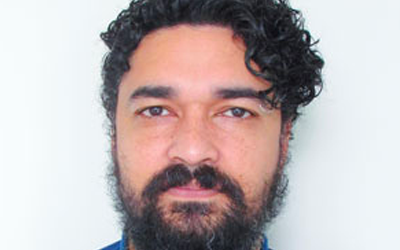Dr. Lisa Julian at Simon Fraser University leads cutting-edge research into how genetic mutations linked to rare cancers and neurodegenerative disorders affect brain development. Her lab grows miniature human brain tissues from patient-derived stem cells, allowing them to study the brain’s earliest stages. Dr. Julian’s research is opening new doors toward understanding and ultimately treating brain diseases.
Research
Cannabinoid Compounds to Augment L-DOPA Treatment and Prevent L-DOPA-induced Dyskinesia
Mar 31, 2025 | Research
Dr. Ali Salahpour from the University of Toronto is exploring whether combining L-DOPA, the primary treatment for Parkinson’s disease, with cannabinoid compounds can enhance its effectiveness and reduce side effects like L-DOPA-induced dyskinesia (LID). His research systematically tests multiple cannabinoids in animal models, aiming to improve Parkinson’s treatment and also discover new therapies for rare dopamine-related diseases.
Unlocking the Competitive Potential of Pluripotent Stem Cells: Towards Novel Stem Cell Therapeutics
Mar 31, 2025 | Research
Dr. Nika Shakiba from UBC is researching human pluripotent stem cells (hPSCs) to improve their safe and efficient use in cell therapies for conditions like Parkinson’s disease. Her lab uses genetic engineering and computational tools to detect and eliminate cancer-like mutations in lab-grown cells, optimizing biomanufacturing and differentiation processes to make hPSC-based treatments more reliable and scalable.
A Chemical Biology Approach to Uncovering Modulators of a Parkinson’s Disease-linked Protein
Oct 30, 2024 | Research
Dr. Nicholas See is focusing on the enzyme glucocerebrosidase (GCase), which, when underactive, has been linked to earlier onset and faster motor decline in PD patients. Even beyond genetic mutations, reduced GCase activity is a consistent factor in PD. Unlocking these modulators may reveal novel pathways for PD treatment and bring hope for future therapies.
Stimulation-task-based fMRI, a Practical Clinical Modality for Personalizing Therapy in the Treatment of Parkinson’s Disease with Deep Brain Stimulation
Sep 3, 2024 | Research
Dr. Brendan Santyr’s research aims to improve Deep Brain Stimulation (DBS) therapy for Parkinson’s disease by using functional MRI to quickly determine optimal stimulation settings after surgery. If successful, it could enhance DBS accessibility and promote more individualized care for PD patients globally.
An Individualized Multi-modal Approach for Detection of Medication “Off” Episodes in Parkinson’s Disease via Wearable Sensors
Apr 23, 2024 | Research
Researchers at the University of British Columbia are developing a wearable device to help Parkinson’s disease patients manage their L-dopa medication more effectively. The study, led by Dr. Martin McKeown, uses the Empatica EmbracePlus wristband, which tracks physiological data such as heart rate and skin temperature, to predict when a patient’s medication is wearing off. This personalized approach aims to alert patients to take their next dose before symptoms appear, improving medication timing and overall quality of life.
Influence of Fatigue in Parkinson’s Disease On Gait Performance and Locomotor Control Mechanism
Jul 11, 2023 | Research
Dr. Caroline Paquette’s study examines how fatigue affects walking and movement in people with Parkinson’s disease. Fatigue, common in PD, impacts both physical and mental functioning. The goal is to better understand fatigue in PD and its impact on daily life, potentially leading to improved management strategies.
Diagnosing Mild Cognitive Impairment Early
Nov 30, 2022 | Research
Dr. Biniyam Ayele is working to identify biomarkers for mild cognitive impairment (MCI) in people with Parkinson’s disease. MCI, often a precursor to dementia, is difficult to diagnose early due to a lack of clear biological markers. Early detection could allow timely interventions like cognitive therapy and medications, potentially slowing dementia progression.
Cerebellar Transcranial Ultrasound Stimulation to Alleviate Freezing of Gait in Parkinson’s Disease
Jul 19, 2022 | Research
Dr. Jean-Francois Nankoo is exploring a new approach to treat freezing of gait in people with Parkinson’s disease. He uses low-intensity ultrasound waves to target the cerebellum, a brain area that may compensate for movement issues in Parkinson’s. By stimulating this region, Nankoo hopes to unfreeze patients’ gait and restore their mobility.









